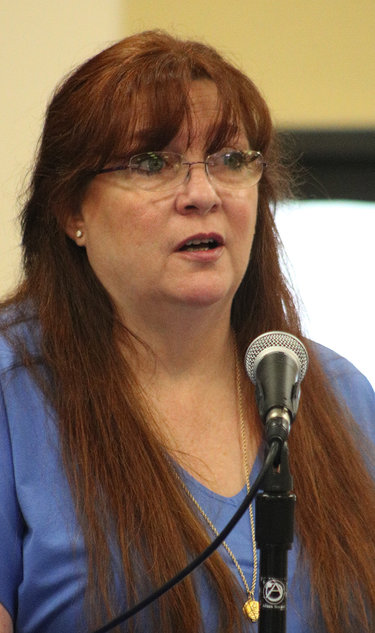‘A virtual community’ helps people in recovery from substance use disorder
ALBANY COUNTY — Kellie Roe describes herself as “a person in long-term recovery.”
She is also the director of Second Chance Opportunities Inc., a not-for-profit janitorial company that employs people in recovery from substance use disorder. Second Chance, located on Colvin Avenue in Albany, also offers financial rehabilitation, recovery coaching, housing opportunities, and medical referrals.
On March 19, because of the shutdown to stem the spread of coronavirus, “We unfortunately had to close our doors,” said Roe at Saturday’s county press briefing.
Since then, Roe said, “We have created a virtual community.” Second Chance now offers video-conference meetings six to eight times a day. “They’re not anonymous meetings,” she said, like those held for Alcoholics Anonymous or Narcotics Anonymous.
Rather, participants may have coffee at eight in the morning with recovery coaches, for example, or, at two in the afternoon do creative work with another coach.
Second Chance is also offering one-on-one peer support, Roe said. She described this as “really important because you’re having a conversation with someone who has that lived experience.”
Because of the isolation brought about by the coronavirus shutdown, Roe said, “Some of us are suffering from depression so we’re helping people make short-term goals like getting in a walk, doing a little exercising, having a little artwork, doing some cooking.”
Roe went on, “We’ve had over 50 referrals, since we shut down, to mental health, physical health, really anything that anybody needs. Any family members who are concerned about a loved one can contact us.”
Roe urged people to go to the website for Second Chance or look at its Facebook page, both of which are updated daily. People may also call 518-489-1929 or email info@SCOAlbany.com.
“A lot of our community members are dealing with addiction,” said Albany County Executive Daniel McCoy. He said it is a daily struggle to fight the addiction.
“The one thing these people depend on is meetings,” he said. “They depend on seeing people. For some, the Zoom meetings work. The others just need to see people and know they have that support mechanism, that they have someone they can lean on.”
McCoy noted that, even when an addict is in recovery, the addiction is “something you have to deal with your whole life.”



